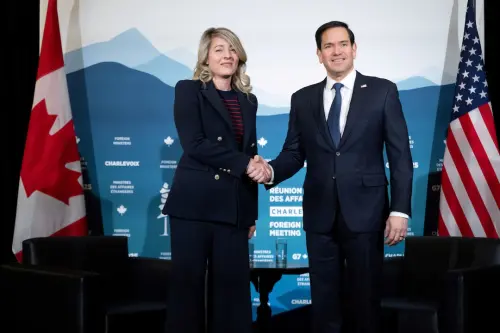In La Malbaie, Canada, diplomats from the G7 nations engaged in late-night negotiations to present a unified front on Thursday after a period of tension with President Trump over his changes to Western trade and security policies.
The G7 ministers from various countries and the European Union gathered in the remote town of La Malbaie for discussions expected to be harmonious.
Amidst uncertainty stemming from Trump's actions, diplomats worked to create a consensus on a final statement, with hopes of demonstrating unity.
EU foreign policy chief Kaja Kallas expressed optimism about reaching an agreement, emphasizing its importance to showcase solidarity.
The looming threat of trade disputes was highlighted by reciprocal measures taken by Canada and the EU in response to U.S. steel and aluminum tariffs.
Divergence on issues such as Ukraine, Russia, and China added complexity to the negotiations, with the U.S. urging stronger language against Russia and China in the draft communique.
Challenges in the Middle East and potential revival of the G8 group were also subjects of debate among diplomats.
The strained relationship between the U.S. and Canada was evident, with Trump's tariff threats causing tensions, including the possibility of imposing steep tariffs on Canadian wine imports.
Canadian Foreign Minister Melanie Joly vowed to work alongside European counterparts to push back against U.S. pressure at the G7 meetings.
